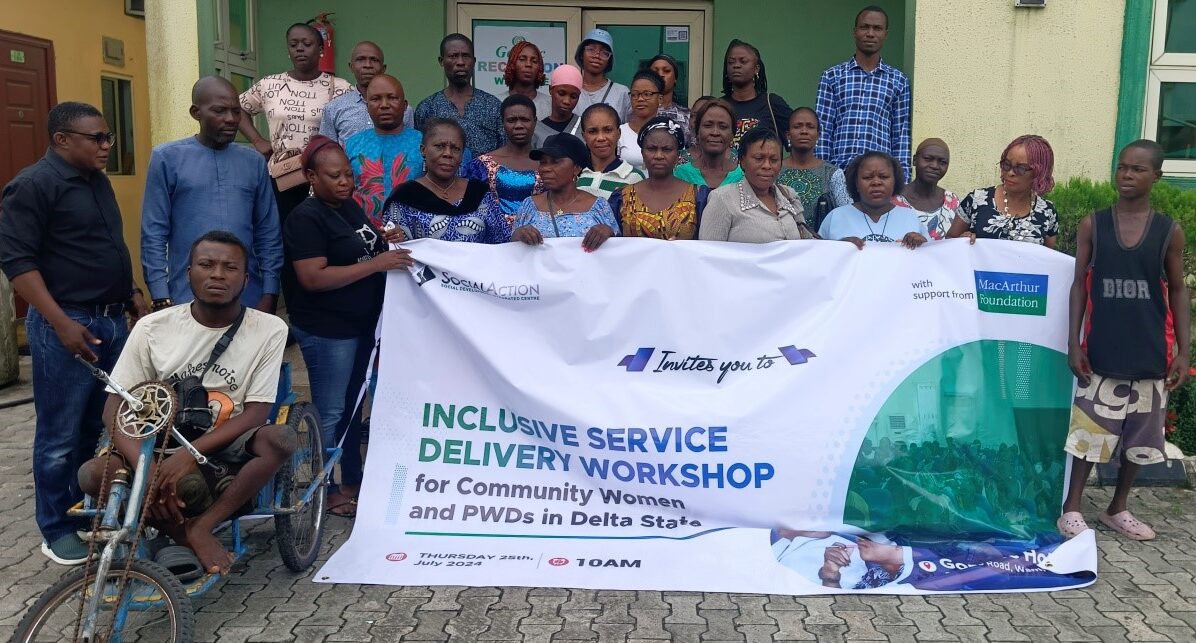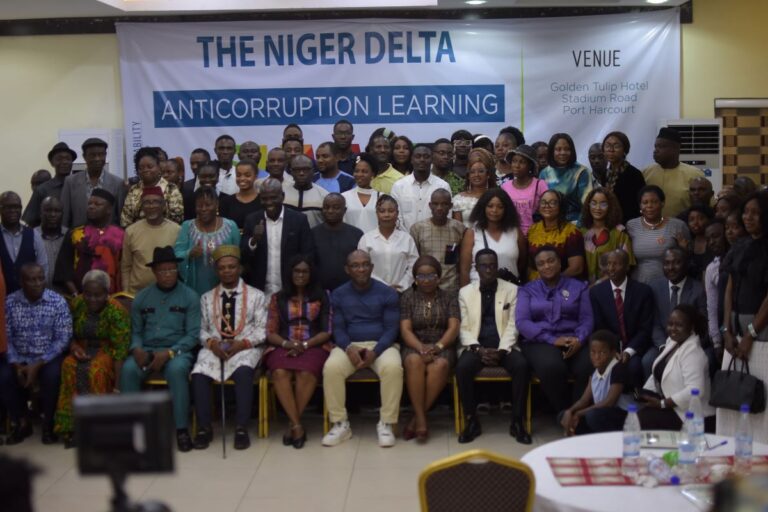Social Action Mobilizes Community Women for Accountability and Inclusive Service Delivery in the Niger Delta
Empowering Community Women and PWDs for Accountability
In a significant step towards enhancing community engagement and ensuring accountability in the Niger Delta, Social Action has initiated a series of capacity-building workshops aimed at empowering community women and persons with disabilities (PWDs). These workshops are designed to enable participants to demand inclusive service delivery from state governments and interventionist agencies across the region. This initiative is part of a MacArthur Foundation-supported project focused on strengthening community actions for accountability and inclusive service delivery in the Niger Delta.
First Workshop in Delta State
The inaugural workshop, held on July 23, 2024, in Warri South, Delta State, brought together a diverse group of participants, including women community activists, leaders of market women groups, heads of women-led community-based organizations (CBOs), and representatives of PWD associations. The primary aim was to equip these women with the skills and knowledge necessary to engage effectively with duty bearers, ensuring that projects impacting their lives are executed transparently and inclusively.
Key Training Components
The workshop featured comprehensive presentations on project tracking and reporting, guiding participants through strategies for monitoring the progress and quality of community projects. Attendees learned a step-by-step approach to engaging with duty bearers to ensure that services are delivered in a manner that benefits the community.
A significant focus was placed on the Freedom of Information Act, highlighting its potential as a powerful tool for demanding accountability. The presentations demonstrated how the Act can drive transparency and inclusiveness in government actions, emphasizing its role in transforming service delivery.
Additionally, the workshop included training on data gathering for advocacy purposes, teaching participants how to use fiscal documents as a source of data for informed community action. Women were encouraged to demand access to budgets and other fiscal documents to understand planned projects in their communities and actively participate in their implementation.
Building Networks for Sustained Engagement
To sustain community efforts towards inclusive and accountable service delivery, Social Action aims to build networks of women and PWDs across the Niger Delta states. These networks will facilitate continuous capacity building and collaboration, ensuring that community voices are heard and acted upon.
Ondo Budget Transparency and Accountability Platform (OBTAP) Sensitizes Ondo Community
In a similar vein, the Ondo Budget Transparency and Accountability Platform (OBTAP) conducted a workshop in Ondo Town, Ondo State, focusing on the need for collective action against corruption in project management. Supported by Social Action and the MacArthur Foundation, this workshop aimed to sensitize community women and leaders on inclusive service delivery.
During the workshop, participants expressed concerns over abandoned projects, particularly highlighting the stalled rehabilitation and furnishing of school buildings at Ondo Boys High School, despite the allocation and release of N100 million for the project in 2019.
Community Leaders Demand Action
Community leaders, including Mr. Akintunde Alex Akindele, Vice Principal of Ondo Boys High School, and Mr. Akingbojule Olusola, a community leader and farmer, pledged to collaborate with OBTAP and relevant stakeholders to ensure the project’s completion. They emphasized the need for transparency and accountability in the execution of such projects.
Commitment to Ending Corruption
Mrs. Ibiyinka-Akinsulire E.Y. of OBTAP assured participants of their commitment to working with all stakeholders to hold contractors accountable and ensure the project’s swift execution. She expressed gratitude to all attendees for their dedication to improving the school and combating corruption in Nigeria.
Conclusion
Social Action’s initiatives, supported by the MacArthur Foundation, are paving the way for a more accountable and inclusive service delivery framework in the Niger Delta. Through capacity-building workshops and the creation of community networks, women and PWDs are being empowered to demand transparency and actively participate in the development of their communities.











